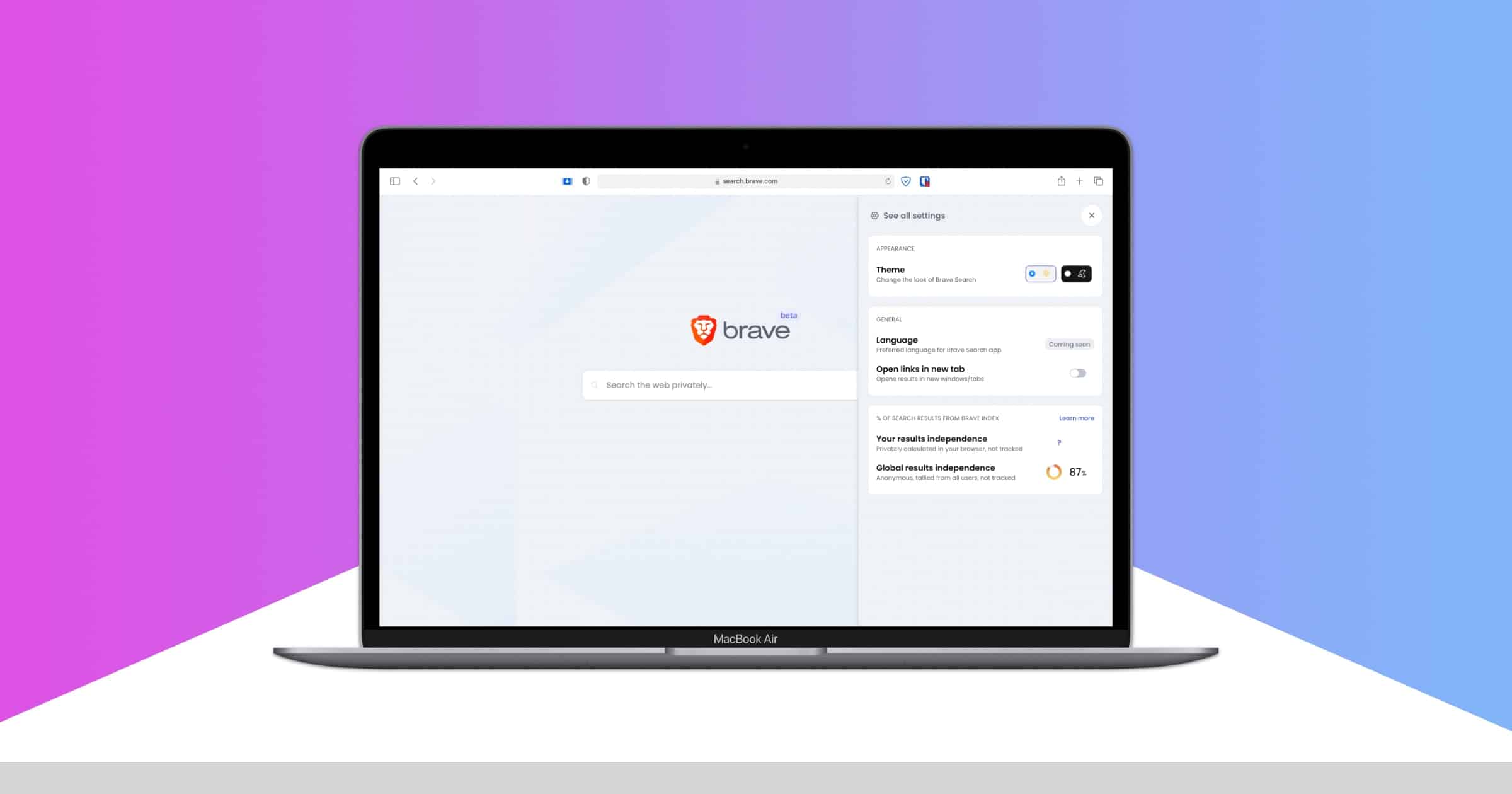
The upshot is that there's plenty of life in web interfaces beyond Google. Clicking the three stacked lines in the top right corner of the results page gives you the "results independence" percentage as a circle graph. You can check to see how many results are Brave's, and how many are from other search engines, by clicking the Info link near the top of every Brave Search results page. However, every query we typed into Brave Search, even one for an obscure town on a Caribbean island we're familiar with, came back with "All results from Brave." That was pretty impressive. Near the bottom of every Bing search-results page, there's a link to "find elsewhere," with links to the same search query you typed into Brave Search as resolved by Google, Bing and another search engine called Mojeek. This is done because Brave "may not be completely confident in our results to be at the level of quality you'd expect," especially during the beta testing. "For some features, like searching for images, Brave Search will fetch results from Microsoft Bing," according to yesterday's Brave blog post.Ī long explanation of Brave Search's methods (opens in new tab) on a separate page states that while "Brave is fully capable of answering 99% of queries completely on its own," in actuality, a small percentage of results for certain queries may end of being "fetched anonymously from third parties, namely Google and Bing." That may be true, but Brave Search isn't quite free of Bing and Google either. Brave announced in March of this year that it had bought Tailcat.Įich told Tom's Guide then that Brave planned to use Tailcat to build "the first multi-platform, private, browser/search alternative to the Big Tech platforms." He pointed out that DuckDuckGo "relies on Bing as the search engine under its hood." Brave does dip into other search engines occasionallyīrave Search is based on the Tailcat search engine, which was originally created for an aborted German web browser called Cliqz. Results pages have about as many images as Google's results but fewer than Bing's. Generic queries, such as for "fish," let you toggle between universal and local results, such as for fish markets and restaurants.

(Bing has the best infoboxes of all.)īrave Search's results also give you about 18 text links per page, as opposed to 8 or 9 for Google, between 7 and 10 for Bing and 10 for DuckDuckGo. But Brave Search adds features that Bing and Google also include, such as a "People Also Ask" box for related searches, a box for video results, and a larger infobox than what DuckDuckGo provides. Brave Search feels more like Google or Bing.ĭuckDuckGo does have a "Recent News" box high on the page and an information box to the right side, as do the others. As for DuckDuckGo, the original privacy-oriented search engine, that feels like a throwback to the '90s, with mainly text-based search results but little else.


 0 kommentar(er)
0 kommentar(er)
